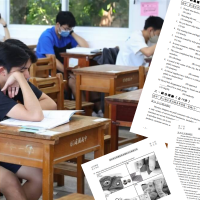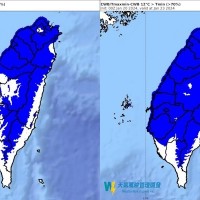TAIPEI (Taiwan News) — The recent presidential election demonstrated that China sharpened its disinformation tools and increased its efforts to try and interfere in Taiwan’s politics, according to a new report on fake news.
Attendees at the press conference marking the release of a Doublethink Lab report on Friday (Jan. 19) in Taipei were told the amount of Foreign Information Manipulation and Interference (FIMI) from China is increasing. Chinese agents operating online have turned to influencers and generative artificial intelligence (AI) to meddle in the nation’s political process, according to the report.
Doublethink analysts admitted it was difficult to parse genuine public opinion from manipulation, which left the question open as to how much influence was brought to bear on Taiwanese society through China's FIMI operations.
Doublethink Lab is a Taipei-based organization that was established five years ago to expose disinformation in the public sphere. It focuses on “malign Chinese influence” because it is said to be so pernicious, with Beijing's ultimate goal to undermine democracy, invade, and occupy Taiwan.
Doublethink Lab's Senior Analyst Jerry Yu (余任晴) said that China upgraded its disinformation campaign against Taiwan for the presidential election, saying December was a turning point. “They waited for conflict to emerge after December and then started releasing fake news” about outgoing President Tsai Ing-wen’s (蔡英文) supposed “secret history.”
“They had different strategies compared to two years ago when there were elections,” Yu continued. “Since 2022 they have been hiding in the shadows, but when elections come up they emerge.”
Generative AI that creates texts, images, or other media, is “changing the landscape,” Yu said, adding that China was also working on making more disinformation to “create volume for belief.”
That said, Yu recognized that it was difficult to tell the difference between manipulation and real public opinion.
Doublethink says China’s FIMI operations targeting Taiwan have evolved over the years and involve a range of actors, including content producers who give work to popular influencers. Their use of generative AI is expected to make FIMI-related content production cheaper and more sophisticated, while at the same time increasing the volume of content produced.
Some of the group’s findings for the recent election were:
- KOLs or key opinion leaders, aka internet celebrities, had a strong influence on people, an increase of about 18% to 40% compared to two years ago.
- The ruling Democratic Progressive Party (DPP) is seen as a significant generator of fake news.
- More than half of Taiwanese have faith in the country's democratic system.
- Kuomintang (KMT) and Taiwan People’s Party (TPP) supporters are more likely than DPP supporters to believe the “United States is not trustworthy and just wants to take advantage of Taiwan."
Doublethink researchers believe China has interfered in other democracies and sees Taiwan as a “laboratory” (hence the group’s name) for insights into China's malign influence on political campaigns around the globe.
“This is especially important in a year in which around 2 billion people will go to the polls in more than 50 countries,” a Doublethink statement read.
















